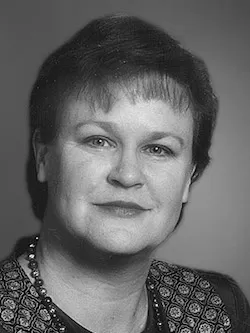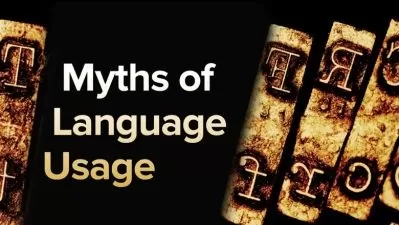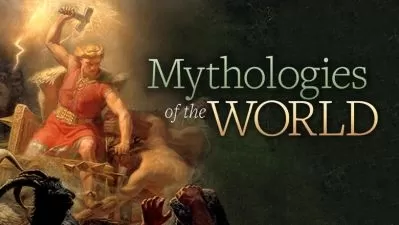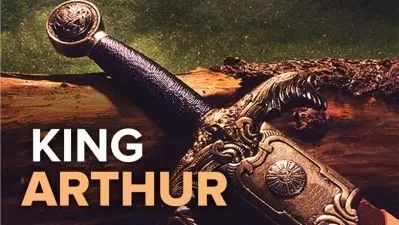Classical Mythology
Elizabeth Vandiver
12:21:52
Description
From Athena to Zeus, the characters and stories of classical mythology have been both unforgettable and profoundly influential. They have inspired and shaped everything from great art and literature, to our notions of sexuality and gender roles, to the themes of popular films and TV shows.
Classical Mythology is an introduction to the primary characters and most important stories of classical Greek and Roman mythology. Among those you will study are the accounts of the creation of the world in Hesiod's Theogony and Ovid's Metamorphoses; the gods Zeus, Apollo, Demeter, Persephone, Hermes, Dionysos, and Aphrodite; the Greek Heroes, Theseus and Heracles (Hercules in the Roman version); and the most famous of all classical myths, the Trojan War.
How Should We Study Mythology?Professor Elizabeth Vandiver anchors her presentation in some basics. What is a myth? Which societies use myths? What are some of the problems inherent in studying classical mythology? She also discusses the most influential 19th- and 20th-century thinking about myth's nature and function, including the psychological theories of Freud and Jung and the metaphysical approach of Joseph Campbell.
You consider the relationship between mythology and culture. What are the implications of the myth of Demeter, Persephone, and Hades—as recounted in the Homeric Hymn to Demeter—for the Greek view of life and death, marriage and gender roles?
What are the origins of classical mythology? Professor Vandiver examines similarities between the Theogony and Mesopotamian creation myths and considers the possible influences that the prehistoric Greek cultures, the Minoans and Mycenaeans, may have had on classical mythology.
She also cautions you about the dangers of probing for distant origins. For example, there is little evidence, as many today believe, that a prehistoric "mother goddess" lies at the heart of mythology. This notion may simply be wishful thinking—a modern myth about ancient myth.
In addition, Professor Vandiver explores the challenges we face in studying mythology—which is rooted in oral tradition and pre-literate society—through the literary works that recount them. How do we disentangle the original myth from its portrayal in Aeschylus's The Oresteia, or Sophocles's Oedipus the King? The more renowned the author, the more difficult this task becomes.
From the "Truth" of the Minotaur to Ovid's Impact on ShakespeareProfessor Vandiver's approach makes classical mythology fresh, absorbing, and often surprising. The many such topics you will consider include:
- The fact that most scholars see significant flaws in the work of Joseph Campbell, one of the best-known and most popular theorists of myth. They believe he makes a variety of assumptions—that myth has a spiritual meaning, or that certain narrative elements are the same in all cultures—that he fails to support, or that are highly questionable.
- The differences between the classical notion of the gods and our concepts of what gods, or God, should be. The ancient gods did not create the universe or earth, were not omniscient or omnipotent, were not consistently good, and did not even care much about humanity.
- The absence of a well-defined belief in the afterlife in Greek mythology and religion. In general, it was the opposite of what we believe: both less important and less pleasant than this life.
- The small kernel of truth, as represented in the "bull-leaping" fresco of Knossos, that may lie at the heart of the myth of the Minotaur, the half-man, half bull-like monster.
- Chronological inconsistencies in mythology. For example, in the story of Theseus, characters interact who in other stories did not even live at the same time.
- The way various mythological depictions of females—the Amazons, the myth of Medea, and such monsters as Medusa and Scyllare—present Greek males' anxiety about women's power, particularly their sexual power. This theme is embodied in Medea's name, which means both "genitals" and "clever plans."
- The Romans' near wholesale "borrowing" of Greek mythology, in the context of their ambivalent view of Greek culture. They considered the Greeks to be better artists, poets, and rhetoricians than they were, but also saw them as decadent, "soft," and treacherous.
- The extensive influence of Ovid's Metamorphoses on the works of William Shakespeare. Because of this relationship, Ovid has had an incalculable effect on English literature.
In her final lecture, Professor Vandiver surveys aspects of the enormous influence that classical mythology has had, and still exerts, on Western Civilization. She offers her opinions as to why this is the case. She also demonstrates that the ancient gods, monsters, and heroes are very much alive and active today in contemporary beliefs in UFOs and visits from extraterrestrials and in popular entertainment such as Star Trek and films such as the Road Warrior and the Terminatorseries.
A Popular and Top-Award Winning Teacher"Professor Vandiver is an outstanding teacher with a clear mastery of her subject," writes Teaching Company customer Barbara Brumbaugh of Auburn, Alabama. "She examines the subject in impressive depth, yet keeps the lectures interesting and accessible to non-specialists."
Professor Vandiver is the 1998 recipient of the American Philological Association's Excellence in Teaching Award, the most prestigious teaching award given to American classicists. She also teaches the related Teaching Company courses The Iliad of Homer, The Odyssey of Homer, and Virgil's Aeneid.
More details
User Reviews
Rating
Elizabeth Vandiver
Instructor's CoursesDr. Elizabeth Vandiver is Professor of Classics and Clement Biddle Penrose Professor of Latin at Whitman College in Walla Walla, Washington. She was formerly Director of the Honors Humanities program at the University of Maryland at College Park, where she also taught in the Department of Classics. She completed her undergraduate work at Shimer College and went on to earn her M.A. and Ph.D. from The University of Texas at Austin.
Prior to taking her position at Maryland, she held visiting professorships at Northwestern University, the University of Georgia, the Intercollegiate Center for Classical Studies in Rome, Loyola University of New Orleans, and Utah State University.
In 1998, The American Philological Association recognized her achievements as a lecturer with its Excellence in Teaching Award, the most prestigious teaching prize given to American classicists. In 2013 she received Whitman College's G. Thomas Edwards Award for Excellence in Teaching and Scholarship. Her other awards include the Northwestern University Department of Classics Excellence in Teaching Award and two University of Georgia Outstanding Honors Professor Awards.
Professor Vandiver is the author of Stand in the Trench, Achilles: Classical Receptions in British Poetry of the Great War and Heroes in Herodotus: The Interaction of Myth and History. She has also written numerous articles and has delivered many papers at national and international conferences.

The Great Courses
View courses The Great Courses- language english
- Training sessions 25
- duration 12:21:52
- English subtitles has
- Release Date 2023/05/09
















